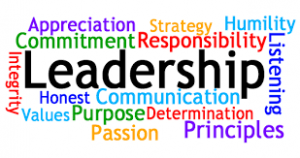Do Extroverts Make Better Leaders?
In 2015 when I wrote The Dynamic Introvert: Leading Quietly with Passion and Purpose the ideal leader was someone with an extroverted personality. Of course we (I’m a card carrying introvert myself) failed to measure up, especially in the workplace. At that time, and for decades before, introverts were overlooked for leadership positions in favor of their more outgoing extroverted colleagues.
Introverts Are Valued Now More Than In The Past
When I saw that Dr. Karl Moore, assistant professor at McGill University was giving a talk to UBC business students about introverts, extroverts and ambiverts I wanted to see what, if anything, had changed.
I wanted to hear what Moore had to say. Had he discovered anything new since 2015 when I had published my book?
Are Introverts Finally Getting the Recognition and Respect that they Deserve?
Dr. Moore stated that “We value introverts more now than in the past.” So far so good.
But then he said “You have to be extroverted or act extroverted to get into the C-Suite.” The C-Suite is code for senior leadership: Chief Executive Officers, Presidents, Directors, Vice Presidents etc.
Here’s an example from a Wall Street Journal article that I quoted in my book: Nearly two-thirds of the 1, 542 senior leaders surveyed in 2006 saw introversion as an impediment to reaching higher (C-Suite) management levels. Extroverts, it would seem by virtue of their outgoing personalities were more intelligent and therefore chosen for leadership roles more often than introverts.
Ok, so nothing much has changed. Or has it?
Getting To The C-Suite
Moore spoke to the need for introverts to change their behavior, in other words to act more extroverted. But he also stated that extroverts need to behave like their introverted colleagues. In other words listen more than they talk, share the limelight with others, and be humble!
“Acting like and E or an I when you’re not is exhausting.” Moore told the audience. Of course, introverts discovered this years ago. I learned to take breaks in order to recover my depleted energy, especially after teaching a class or facilitating a meeting. After teaching a leadership class all day I would go home EXHAUSTED!
This may sound strange to you but after re-reading my notes I thought to myself, “Why are we all trying to be something we are not?” “Why all the acting out of character if it is so exhausting? “
Throughout my career I struggled to be more extroverted. I found it extremely difficult to speak up in meetings which were dominated by extroverts, each speaker louder than the next. My answer was to join Toastmasters where I learned to speak confidently in front of groups. This was a good thing. Initially it was exhausting and it took me years of practice before I was comfortable speaking in a group.
We all need to communicate if we are going to have healthy relationships and we all need to be able to speak up and share our ideas, especially at work.
Don’t Be Afraid to Speak Up!
Thankfully, the time spent at Toastmasters working on my communication skills paid off but don’t worry I have not become an extrovert. I developed my own unique style of communication. I still pause more than some of my more extroverted colleagues but I feel confident when speaking in front of a crowd and I like the fact that I can contribute my ideas in breakout rooms during ZOOM meetings.
If you are an introvert you may disagree with my suggestion that you learn to speak up and speak out. I I agree that we should be accepted for who we are without having to become extroverts in order to fit into society’s expectations of the ideal leader. But now extroverts are also being told that they need to change their personalities to act more introverted.
Moore found in his research that introverts are valued more now than in the past but is it enough?

